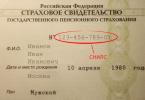All foreign citizens can obtain the official status of a native speaker of the Russian language by participating in the corresponding program. About where to apply, how to issue a carrier certificate in 2018, is described in detail in the article.
The issue of assigning carrier status is regulated by federal law, in particular Federal Law No. 62.
Requirements for a citizen are standard:
- adult;
- capable;
- a citizen (subject) of his state or a stateless person (for example, a refugee);
- at the time of applying to obtain the status of a carrier, a foreigner must legally stay on the territory of the Russian Federation, having the relevant permits in hand (for example, a residence permit);
- speaks Russian, uses it for everyday communication in everyday, cultural spheres, as well as in the family and with loved ones.
The level of proficiency is determined by a special commission in the interview mode. The program for recognizing a person as a native speaker of the Russian language is implemented free of charge for citizens of any state (both near and far abroad). It is mainly used by representatives of Kazakhstan, Ukraine, Belarus, partly - Moldova. Corresponding the certificate is valid indefinitely, there is no need for additional retakes.
4 benefits of getting a status
The main plus is that a person can get a residence permit much faster and easier, as well as Russian citizenship:
- Before obtaining a residence permit, a person with the status of a carrier does not need to obtain a temporary residence permit.
- Also, the carrier does not have to live for 5 years with the status of a residence permit. To obtain permanent citizenship of the Russian Federation, you can start the procedure immediately after receiving the carrier certificate.
- The terms of consideration and the final decision on citizenship are record-breakingly short - up to 3 calendar months.
- Finally, an appropriate certificate confirming the status may be useful for employment in some companies that require advanced knowledge of the national language.
Thus, we can say that the program, according to which a citizen is recognized as a native speaker of the Russian language, is the easiest way to obtain Russian citizenship.
CHANGES IN REGARD TO UKRAINIANS. Since July 2017, Federal Law No. 62 has been amended as contained in Federal Law No. 243. They concern citizens of Ukraine, who now, if they wish to obtain Russian citizenship, may not apply for renunciation of Ukrainian citizenship. Accordingly, Ukrainians can receive the official status of a bearer, and then proceed to a simplified procedure for issuing a Russian passport.
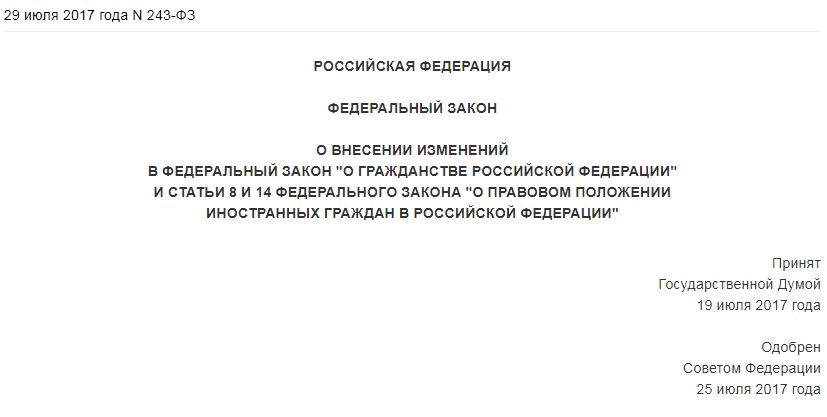

Step by step instructions for obtaining
To apply, you must contact the local office of the migration service. Quite often, the exam itself takes place elsewhere, for example, at the Migration Office. The specific address, full name of the officials responsible for the procedure will be prompted by the employees of the FMS. Practical questions and step-by-step instructions are presented in this video.
Step 1. Collecting the necessary documents
Required package of documents:
- a copy of the national passport with a translation into Russian, the authenticity of which is confirmed by a notary;
- a receipt confirming the payment of the state duty (for accepting the application for work);
- migration card;
- medical certificates;
- 3 photographs (black and white or color - to be specified in the FMS), format 30 * 40 mm;
- copies of financial documents or a work book (another paper confirming the fact of official employment), which show that the citizen really has income and means of subsistence (it can also be bank statements);
- a document that confirms the annulment of former citizenship (or at least the fact of contacting representatives of the authorities of their country with this request); and if it is impossible to commit these actions (for example, military clashes are taking place on the territory of the native country) - confirmation of this impossibility;
- documents on the change of surname (if changed).
Step 2. Applying
Having collected the entire package of documents, the citizen personally goes to start the procedure for assigning the status of a native speaker of the Russian language. The application form is issued on the spot. There is no single form for this document, but it always contains the following information:
- Photo of a foreigner in the format 30*40 mm (black and white or color).
- Full name (before marriage and present), date of birth, official name of place of birth, as indicated in the passport or other foreign document.
- Citizenship of which country you currently have.
- Details of documents, with the help of which you can additionally verify the level of language proficiency (if any).
- Data on relatives (living and deceased) who live / lived within the territorial boundaries of the current Russian Federation or the former USSR / Russian Empire (full name, date of birth, years of residence, address).
- Indication of full name, date of birth, address and citizenship of close relatives in a straight line (up and down) - children, grandchildren, parents, grandfathers, grandmothers, etc.
- Details of the document that gives the right to reside in the territory of the Russian Federation at the moment (for example, a migration card).
- Address of residence at the moment (in fact), contact details.
- Listing of documents (names, quantity, copy or original) that are attached to this application.
- Marks of consent with the provision of this information, signature, transcript (surname, initials), date.
A sample application is provided below:
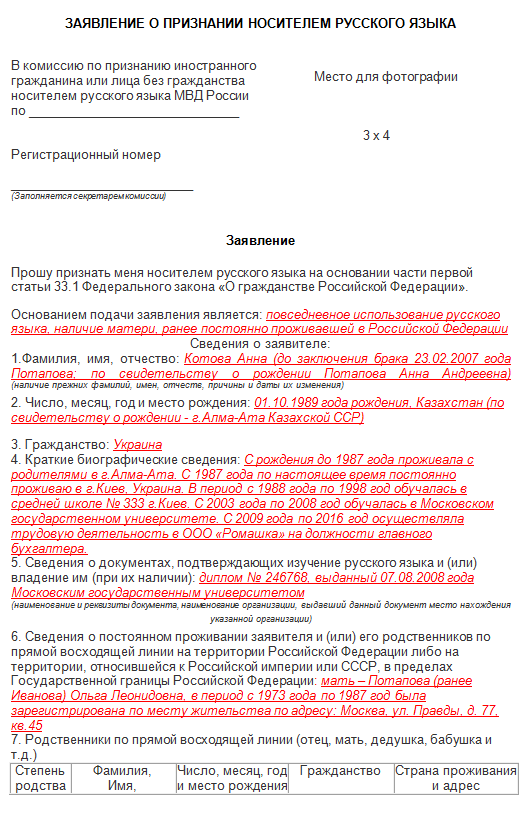
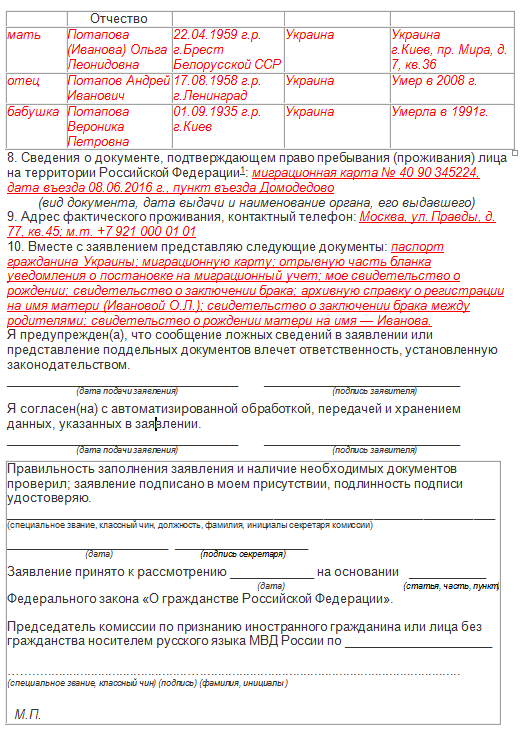
APPLICATION TERMS. The considered application must be submitted to the commission no later than 15 calendar days before the expiration of the document for the temporary stay of a foreigner. And no later than 3 months before the end of his period of residence in Russia.
Step 3. Passing exams and getting a certificate
The main exam is an interview that takes approximately 30-40 minutes. The topic is chosen arbitrarily - it can be a dialogue related to everyday, family relations, as well as a conversation on any topic of culture, for example:
- the situation "in the store";
- a conversation about how the new year is celebrated in Russia and other countries;
- the situation “dialogue with a passer-by”, etc.
The main goal of the interview is to make sure that the person really speaks the language at such a level that he is able to understand quite well what the conversation is about, freely change the topic, navigate in oral speech, skillfully use different verbal constructions, etc.
The commission checks the examinee according to the following criteria:
- speech is perceived naturally and intuitively: the topic is clear, what the interlocutor means, what he can hint at, etc .;
- fluent speech, it is possible to quickly change the topic (the so-called spontaneous speech);
- a foreigner speaks Russian without a significant accent: all Russian-speaking people can understand him;
- he owns the means of expressiveness of the language, observes stylistic, lexical norms, does not allow gross errors;
- a foreigner understands the logic of the language and can achieve any everyday or general cultural communication task (for example, find out the phone number, address, inquire about the affairs of his interlocutor, etc.).
Thus, it is assumed that a person who intends to become an official native speaker of the Russian language under the appropriate program is able not only to speak, read, and write fluently within the limits of general literacy, but also to construct his thoughts “in Russian”, i.e. think like an ordinary citizen of Russia.
Along with the interview, the following exams are also expected:
- Simple grammar tests for knowledge of the elementary norms of the language.
- Comprehension of speech based on text analysis (the examinee is allowed to read the text, after which it is necessary to verbally answer questions of a semantic nature: what is the main idea of what was read, what questions were asked by the author, etc.).
- Written task - a foreigner is asked to write several short texts of common genres: in the style of congratulations, in business style, in the usual conversational style, etc.
In general, the exams are quite simple, that is, they have nothing to do with the Unified State Examination and other forms of certification in the Russian language that applicants or graduates take. This is a simple interview on everyday, general cultural topics, which helps to determine whether a person really knows Russian. Reviews of those who received the certificate mainly confirm the simplicity of the procedure.
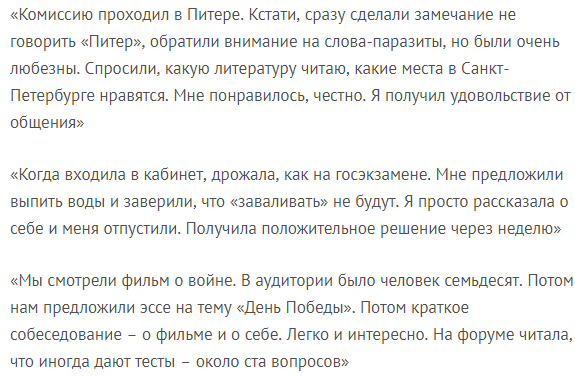
In case of successful completion of the interview and all the described tests under the program, the citizen receives the status of a native speaker of the Russian language, which is confirmed by an official certificate. The document indicates the level of ownership (which in any case does not cast doubt on the status of the carrier), the name of the person who passed the test, the date of issue. The document is issued in a single copy. If necessary, you can make copies of the certificate and notarize them.
The commission also provides its decision, which is printed on the official letterhead of the Migration Service (FMS). The decision has the status of a legally valid document and is mandatory for execution by the relevant authorities. It states that the commission recognized the foreign citizen as a native speaker of the Russian language in accordance with the requirements of the approved program.
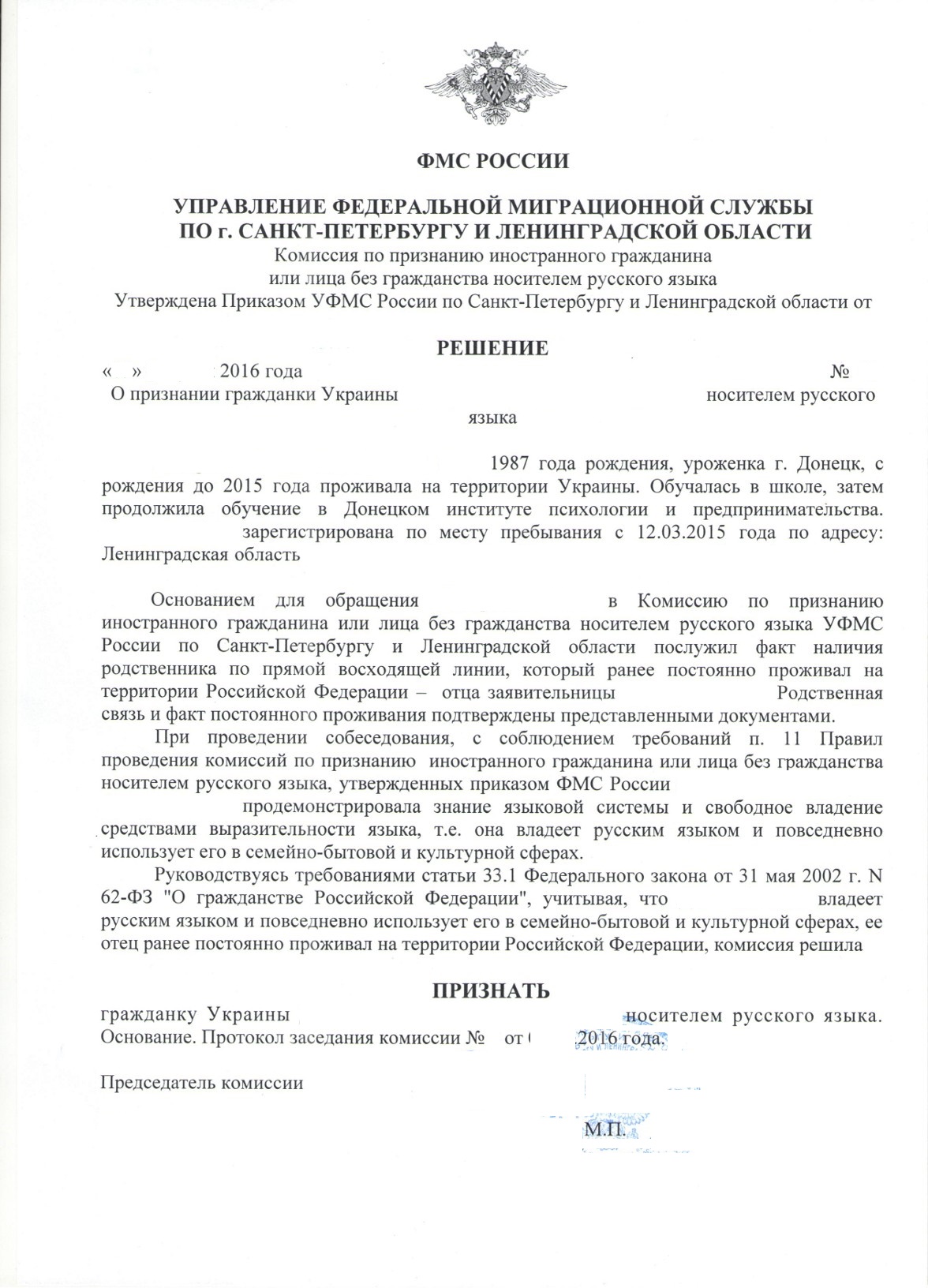
IF THE EXAM IS NOT PASSED. In this case, you can retake all the tests, have an interview after at least 1 year. A new surrender attempt is also free.
Step 4: Follow up
The commission makes a decision within 5 working days. After that, a citizen can request representatives of his state (for example, through an embassy or consulate) to renounce citizenship. After receiving official approval, the foreigner, together with all the documents, again applies to the local branch of the FMS, where the registration procedure begins.
Features of registration of citizenship of children
The exam program is intended only for adult foreigners. In the case of children, the procedure for obtaining a passport is significantly different:
- If at least one of the parents is a citizen of the Russian Federation, the spouses themselves choose which citizenship to obtain (or both at the same time). In this case, any decision must have the appropriate written consent from each parent. The fact of an official marriage or its absence does not matter.
- If both spouses are foreigners, but the child was actually born on the territory of Russia, you must request a refusal to obtain a passport of your native country. After the official confirmation of the refusal, you can proceed to the registration of Russian citizenship.
Grounds for refusal
Along with the obvious case where the refusal is related to the failure of all exams (or some of them), there are other grounds that relate to more serious factors. For example, documents will not be considered if a foreigner.



